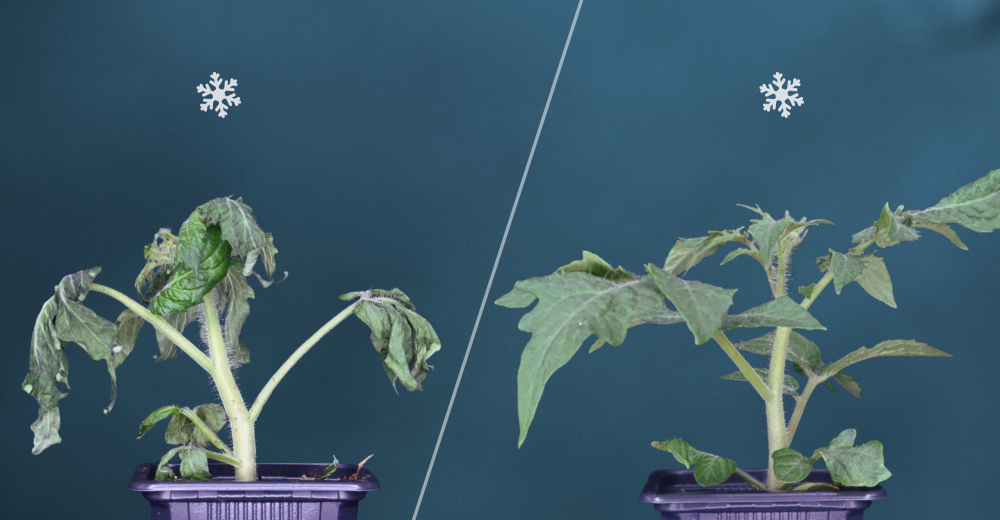
Researchers Develop Cold-Resistant Tomato Without Compromising Growth
November 12, 2025| |
The tomato plant is highly susceptible to cold stress, with temperatures below 12°C severely impairing its growth and development. This sensitivity leads to crop failure and food waste, particularly in regions with unpredictable weather. To solve this challenge, researchers at the University of Barcelona and the Centre for Research in Agricultural Genomics (CRAG) developed a new cold-resistant tomato variety that maintains robust growth without compromise.
The researchers discovered that increasing glycosylated sterol (GS) levels in tomato improves cold tolerance by stabilizing cell membranes and activating hormonal signaling pathways. Unlike most plants, where GS are minor components, these molecules are predominant in the Solanaceae family. By increasing GS levels—specifically by overexpressing the SlSGT2 enzyme—the scientists found that these molecules act as crucial cold sensors. They not only stabilize the plasma membrane but also activate a complete protective molecular response, effectively "pre-conditioning" the plant.
This preconditioned state triggers an early defense mechanism that includes the activation of hormonal signaling pathways, particularly those involving jasmonates, and the upregulation of antioxidant enzymes and defense genes. The result is a plant prepared to withstand the damaging effects of cold stress, opening new biotechnological avenues for agriculture. This innovation promises to increase yields, reduce pre-harvest food waste caused by cold snaps, and enable more sustainable cultivation practices by potentially lowering the need for energy-intensive greenhouse heating.
For more details, read the article in CRAG News.
| |
You might also like:
- Tiny Zinc-Finger Protein Key to Giant Tomatoes
- Scientists Discover Genes For Bigger Tomatoes and Eggplants
- Experts Use Genome Editing to Make Tomatoes Yield Earlier
Biotech Updates is a weekly newsletter of ISAAA, a not-for-profit organization. It is distributed for free to over 22,000 subscribers worldwide to inform them about the key developments in biosciences, especially in biotechnology. Your support will help us in our mission to feed the world with knowledge. You can help by donating as little as $10.
-
See more articles:
-
Plant
- Researchers Develop Cold-Resistant Tomato Without Compromising Growth
- Experts Improve Efficiency of Transgene-free Gene Editing in Citrus
- Researchers Discover Key to Reducing Dependence on Synthetic Nitrogen Fertilizers
- Study Finds Narrower Rice Leaves Boost Photosynthesis Efficiency
- Scientists Speed Up Growth of Transgenic Plants from Months to Weeks
- EFSA GMO Panel Releases Scientific Assessment of GM Oilseed Rape LBFLFK
- Experts Highlight the Use of Precise Genetic Approaches to Develop Climate-Resilient Crops
-
Animal
- Gene Drive Technologies: Advances in Health, Conservation, and Governance
-
Read the latest: - Biotech Updates (January 21, 2026)
- Gene Editing Supplement (December 17, 2025)
- Gene Drive Supplement (February 22, 2023)
-
Subscribe to BU: - Share
- Tweet

